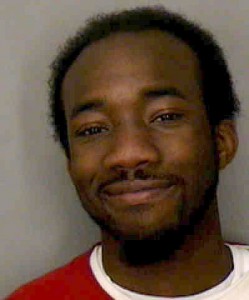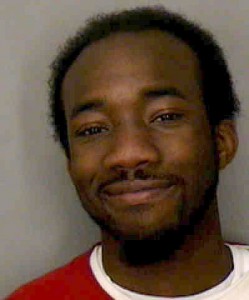Raps & blogs: true threats or protected speech?

The First Amendment grants all Americans freedom of speech, whether oral, written, posted online or through other means of electronic communication. You may be argumentative, rude, insulting or even vile. But our right to free speech is not absolute or unlimited. Several recent cases provide examples of restrictions on self-expression.
Florida rapper, 20-year-old Antavio Johnson, wrote the song “Kill Me a Cop” and posted it on MySpace. In it, he sings “I’m-ma kill me a cop one day” and names two police officers. By making a specific threat against named persons, Antavio committed a crime. He pleaded no contest to threatening charges and was sentenced to two years in prison.

Antavio Johnson
In another case, blogger Hal Turner, allegedly posted the following statements directed at three federal judges: “Let me be the first to say this plainly: these three judges deserve to be killed,” and “Observe the Constitution or die.” Turner included their names, photos, phone numbers, work addresses, and a photo and map of the federal courthouse in Chicago where they work. Again real threats to hurt someone are not protected speech. Turner was arrested in June, 2009, and faces criminal charges for his postings.
 In Arizona, a 28-year-old pastor preached a sermon in August, 2009, titled “Why I hate Barack Obama.” Steve Anderson leads the Faithful Word Baptist Church where he prays for the death of the President. Anderson was quoted saying “I’m going to pray he dies and goes to hell” because of his pro-choice stance on abortion. The United States Secret Service is aware of the comments and has stated that “an appropriate follow up will be conducted.” [photo from faithfulwordbaptist.org]
In Arizona, a 28-year-old pastor preached a sermon in August, 2009, titled “Why I hate Barack Obama.” Steve Anderson leads the Faithful Word Baptist Church where he prays for the death of the President. Anderson was quoted saying “I’m going to pray he dies and goes to hell” because of his pro-choice stance on abortion. The United States Secret Service is aware of the comments and has stated that “an appropriate follow up will be conducted.” [photo from faithfulwordbaptist.org]
What do you think of these cases? Should you be allowed to say anything you’d like as long as you don’t physically threaten anyone? What about cyberbullying – where do you draw the line between expression and an actual threat to do harm?



I believe that the law is correct in the way it stands. First of all, these people in these cases are most definitely going against the law. For it to be free speech it can not incite imminent lawlessness, have any sort of obscenity or defamation attached to it, cannot be fighting words, and cannot be a true threat (the cases above fall into the context of true threats). You can say whatever you want as long as it does not fall under these categories listed above, and I believe it should stay this way. Cyberbullying is not an expression of free speech in pretty much all cases. Cyberbullying most likely includes obscenity as well as sometimes true threats. Both of which are against the law. I believe when it comes to cyberbullying you should have content-based scrutiny when cracking down on it. People should not be cyberbullying in the first place, but punishing it should at least abide by the law if not be a little more strict.
Thanks for your comments.